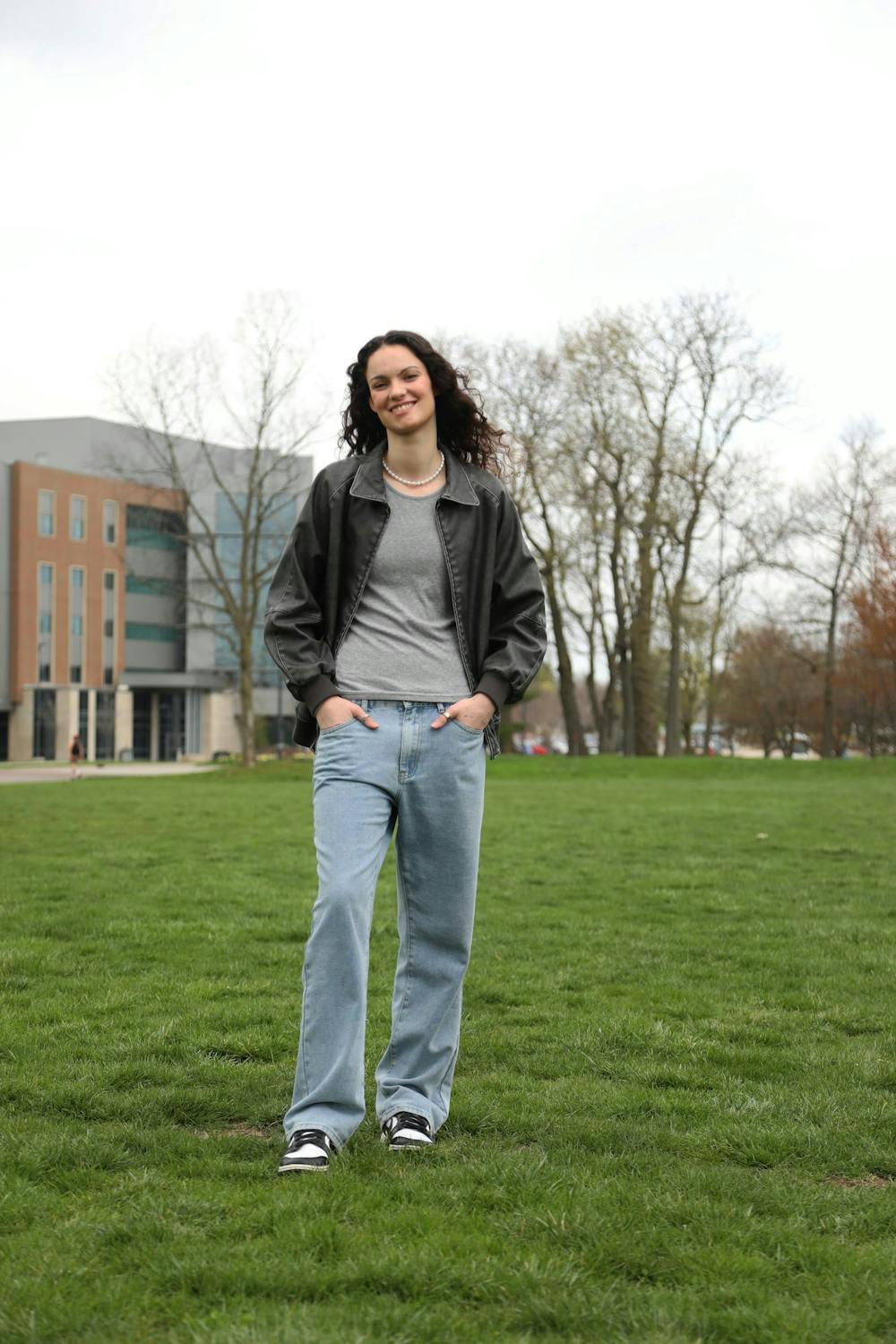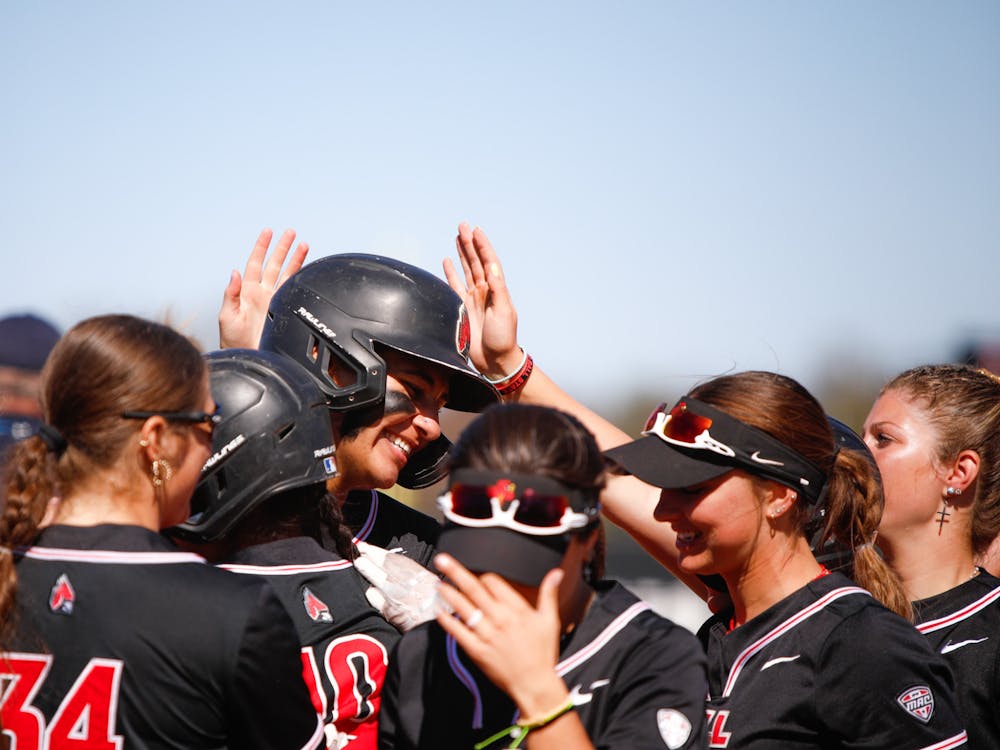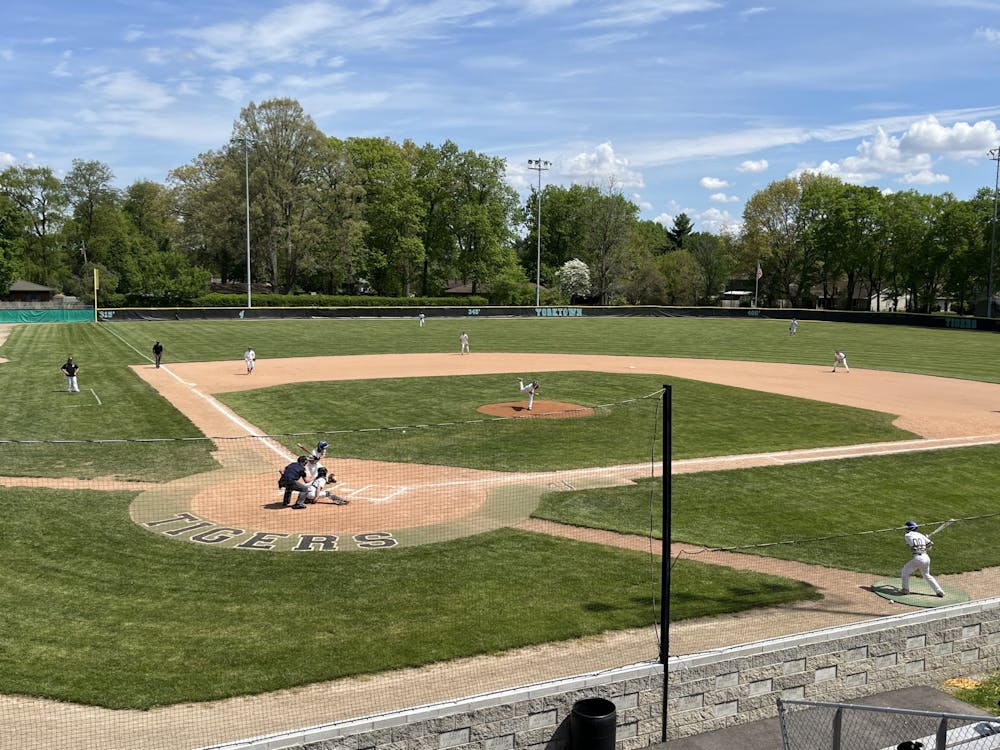If Estel Puiggros is walking through downtown Muncie with her partner, someone is looking.
“There are always those moments that it is like, ‘I hope they are not staring at me because of this.’ But they probably are,” Puiggros said.
Puiggros, a senior women’s basketball player, is one of many LGBTQ+ athletes playing for Ball State University. Although she never has had issues on the Ball State campus, her sexual orientation has caused concerns off campus.
If she is with donors or families, she said she never knows if she is able to be fully out with them. Puiggros said she has been through many unsure situations but, regardless, she said she knows her true self.
“I am not going to be like, ‘Oh yeah, I love women,’ but I am not going to hide it,” Puiggros said.
As an athlete who is openly out, Puiggros said there isn’t a difference between being a gay athlete and a straight athlete. Regardless of sexual orientation, she always felt included like everyone else.
“I have grown to be this person, and I know who I am,” Puiggros said. “I do not really care what people think about me.”
Within the Ball State women’s basketball program, Puiggros said support is constant.
“We know what is going on with everyone, and nobody is going to judge you on whoever you like, love or want to be with,” Puiggros said. “It is nice to be surrounded by people who are encouraging and being like, ‘We support you,’ or ‘We are proud of you and here for you.’”
When Puiggros has had encounters or issues, she said her teammates have been there for her showing her their love and support.
“Every single person on that team is family,” Puiggros said.
Much like the family environment on the women’s basketball team, men’s volleyball freshman libero Cameron Gray said the “roster top to bottom has been nothing but loving and caring.”
“Men’s volleyball is a sport that does have a good amount of LGBTQ+ people, so over the years it has gotten very normalized,” Gray said. “ Now that more people are starting to come out, it is just the culture of the sport — caring, open, accepting and supportive.”
Gray said he hasn’t feared being himself during his time at Ball State.
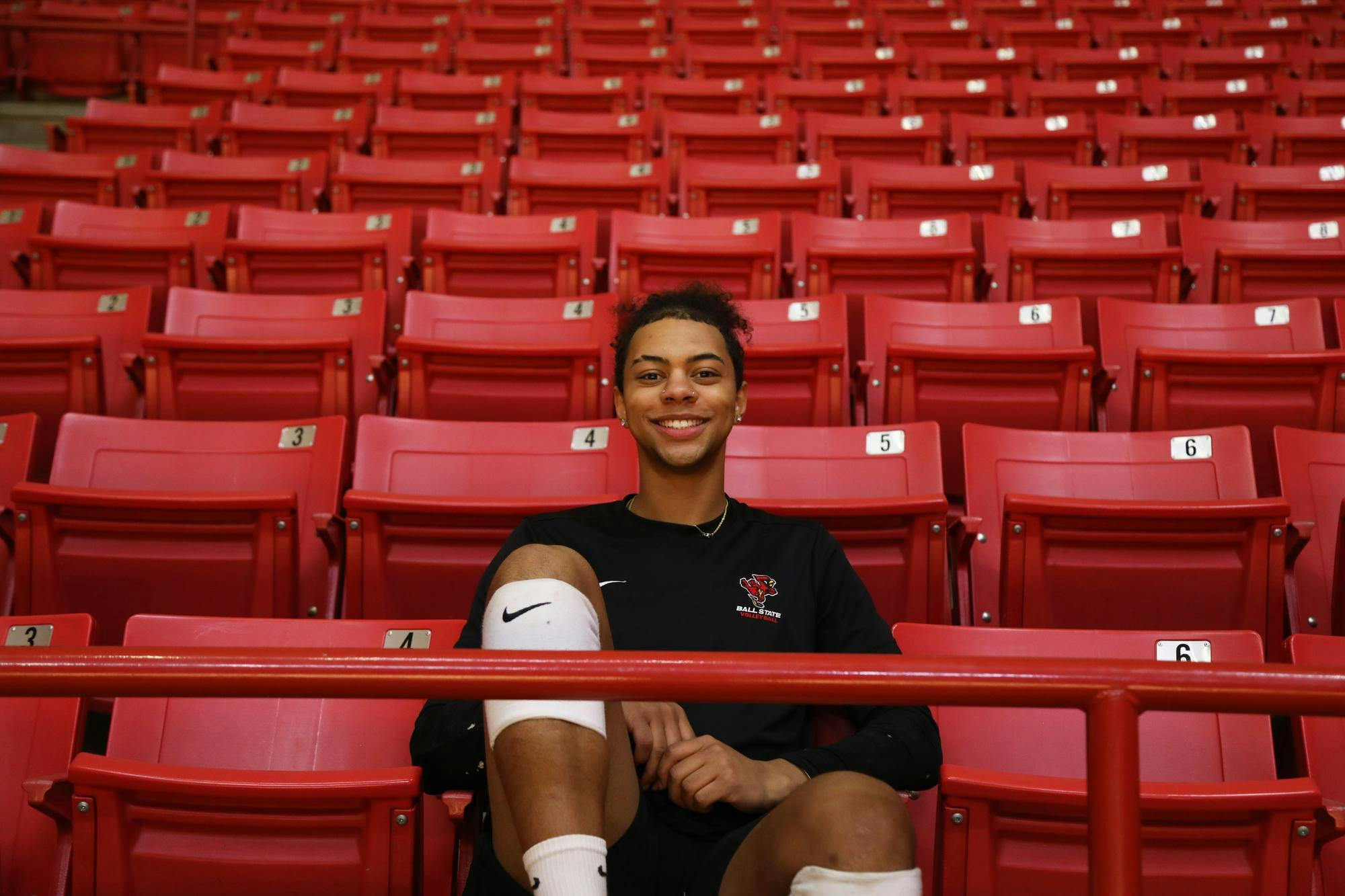
Junior libero Xander Pink isn’t shy about being himself either. When he introduced himself to his teammates and new friends as a freshman, he let them know he was gay early on. He found people who were accepting, as well as people who were a part of the LGBTQ+ community themselves.
While he loves to be himself off the court, Pink said volleyball allows both him and others to be themselves on the court too. When Pink serves an ace, he can give what he calls “attitude.”
“It's funny and entertaining. And sometimes some people might think it's a little much,” Pink said. “I get excited. In that moment, you don't care.”
To Pink, representation in the higher-ups of volleyball is the main reason why the sport is accepting of athletes like him. Owners of organizations and coaches being out are reasons why people can feel comfortable playing the sport.
Pink said Jen Keith, also a junior at Ball State, is his best friend. When Keith celebrates her friend from the stands, she enjoys seeing how volleyball has benefited Pink, no matter if he’s playing or not.
“Off the court, he is the same way. He really is,” Keith said. “He loves to go in and to hear the crowd … he has some young fans and older fans; he just has a big fan base here.”
His supporters don’t miss an opportunity to talk to Pink when they see him around campus. Pink often gets waves and greetings from people while he walks to class, helping him feel the support.
“Everybody kind of has that knowledge of me, I really don't have anything to hide from anybody, and I'm not afraid of their reaction,” Pink said.
Current Ball State director of athletics Jeff Mitchell said Cardinal athletics’ regime feels that inclusiveness is not only important from a personal perspective, but it could even foster better team chemistry, leading to better in-game results.
“I believe teams who embrace diversity of any kind have a better perspective on how to achieve success … I believe this contributes to our 19 sport programs being able to grow their respective teams and attract rosters of diverse and talented individuals,” Mitchell said via email.
Puiggros said she respects others' opinions about her sexual orientation but hopes, in return, they respect her for who she is.
Although her self-confidence is now a driving force in how she takes those opinions, Puiggros wasn’t always outspoken on the topic of sexuality or identity.
In the past when she hid her sexual orientation, she said she and the people around her were sad because she was not being her true self. She said it was tough to come out, but her family will always be her family, showing support and love.
Now, she fully accepts the person she has always been.
“This is who I am,” Puiggros said. “I can’t do anything about it. I am happy.”
Keith said she has always noticed Pink’s outgoing and “strong-headed” approach to his sexuality. They met each other their freshman year and have been by each other’s side ever since. Pink realizes not everyone he meets will provide the acceptance Keith does.
“You're not gonna get along with everybody,” Pink said. “You have to accept that they're not going to understand where you're coming from, and you're probably not going to understand where they're coming from.”
Accepting that rejection allows Pink to change his perspective on how he goes about his daily life. Not even questionable looks from strangers can stop him from expressing himself.
“If there's somebody looking at me, I'll be like, ‘Let's put on a show. If they want to look, let's give them something to watch,’” Pink said. “If you’re going to stare at me, I might as well make it entertaining.”
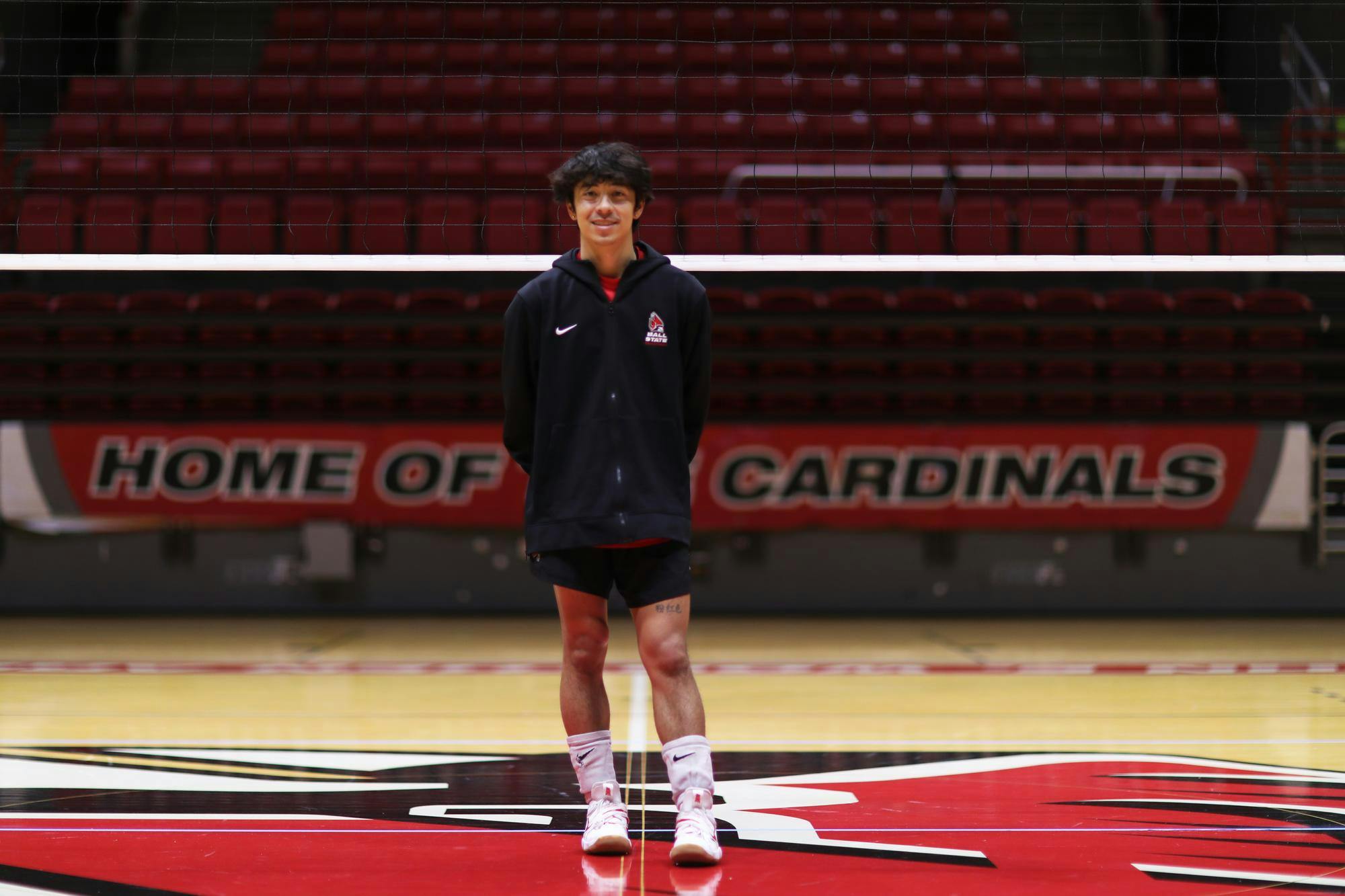
Junior libero Xander Pink poses for a photo April 11 at Worthen Arena. Pink’s supporters don’t miss an opportunity to talk to Pink when they see him around campus. Mya Cataline, DN
Although some could see that as counter-productive, Puiggros feels that normalizing LGBTQ+ acceptance is the right approach, and it shouldn’t have to be a “topic of conversation.”
Puiggros said she has been through many unsure situations, but, regardless, she said she knows her true self.
“I am not going to be like, ‘Oh yeah, I love women,’ but I am not going to hide it,” Puiggros said.
While he was intimidated coming into the program being openly out, Gray said he was able to get a good feel for the program during a visit while a senior in high school.
“Since I have been here, it has been great,” Gray said. “Everybody is accepting. I can be my absolute self and do not have to worry about anyone saying anything.”
There are still no active programs in place to provide accommodations for Ball State’s LGBTQ+ athletes and staff, but Mitchell said diversity and inclusion are paramount within Cardinal athletics.
“Values of courage and inclusiveness seem to be embraced by our student body as our students accept the diverse community that Ball State attracts. This culture is shared within our athletics department where we celebrate diversity as a competitive advantage in building teams,” Mitchell said via email.
Hailing from Spain, Puiggros said she was unaware of laws (such as gender-affirming care and more) regarding members of the LGBTQ+ community in the United States and Indiana. Regardless of their impact, Puiggros said these laws never enter her head, and she is focused on being herself purely.
In Spain, Puiggros said the culture around the LGBTQ+ community was more accepting. She would “not be looked at twice” and had fewer problems and issues. She said there are minimal differences between the two countries but ones she has still noticed.
Pink echoed the same sentiment when describing the time he came out to his high school in Hawai’i. At Punahou School in Honolulu, Pink was asked to give a short speech about sensitive topics at a school assembly.
He was assigned to talk about the LGBTQ+ community. That’s when he “dropped the bomb.”
“[I was] a little bit nervous, [it was] kind of scary, but a lot of my friends came up to me afterward and they were super supportive,” Pink said.
Pink told the school unprovoked and unannounced. He’s carried his boldness to Ball State.
“Be who you are, but that doesn't just result to knowing your sexuality; it goes deeper than that,” Pink said. “I live my life more by doing what you say, saying what you mean and just following through.
“I love to put myself into a position where I'm not afraid of anything; if I'm not afraid of anything, nothing will hurt me.”
Contact Elijah Poe with comments via email at elijah.poe@bsu.edu or on X @ElijahPoe4. Contact Caleb Zuver with comments via email at cmzuver@bsu.edu or on X @zuves35.

